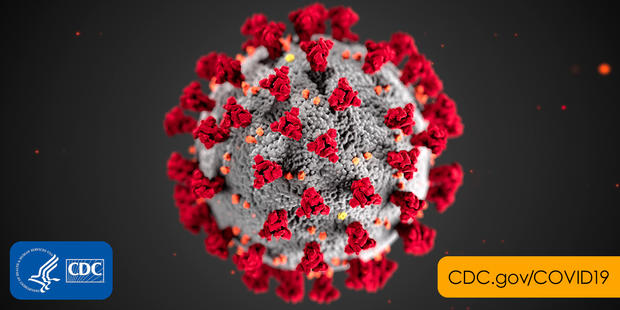Health Departments: You Can Be Fined, Serve Jail Time For Violating Coronavirus Quarantine Orders
DENVER (CBS4) - With the number of COVID-19 cases in Colorado up to 11, and more quarantine orders being issued to prevent further spread of the virus, many are wondering, what are the legal implications of those orders? CBS4 sought to find an answer.
Turns out, the Colorado Department of Public Health and Environment, or CDPHE, says quarantine orders can be issued as enforcement actions in the state district court, which are enforced by a judge. They are called public health orders.
The court can, in turn, issue fines for any violation of those public health orders.
A spokesperson with CDPHE tells CBS4 the state has already issued "at least two public health orders," and has not yet fined anyone.
"While we have the ability to seek a court order if someone is not complying, we prefer to work with people more collaboratively, and historically, that's been successful," said Gabi Johnston with CDPHE in an email to CBS4. "When people are quarantined, they must call us daily to report their temperature and other medical symptoms. We also conduct in-home visits in some situations. People who have been quarantined must also contact us before going to the doctor or emergency room so we can help them make those arrangements. If we sought to enforce a quarantine order, and a judge felt a person had violated it, penalties include $1,000 fine and up to one year in jail."
CDPHE says local county health departments also have the power to issue these public health orders, and the Centers for Disease Control, or CDC, can also issue these orders at a federal level.
"Breaking a federal quarantine order is punishable by fines and imprisonment," the CDC says on its website.
CBS4 reached out to every Colorado county where a COVID-19 case has been confirmed: Denver, Eagle, El Paso, Summit, Larimer, and Douglas Counties.
In Denver, the Denver Department of Public Health and Environment, or DDPHE, says one can be fined or sentenced to jail for violating a public health order.
A spokesperson for DDPHE says every isolation and quarantine order it has issued includes this statement: "It is unlawful for you to willfully violate, disobey, or disregard this Order. Any person who does so may be guilty of a municipal violation and a misdemeanor and, upon conviction may be punished by a fine not to exceed $999 and imprisonment in county jail for up to 300 days. §24-24, D.R.M.C.; §1-13, D.R.M.C."
"Denver currently has 8 individuals under quarantine orders, which will expire at the end of their incubation period (14 days after exposure)," the DDPHE spokesperson told CBS4. "The two presumptive positive cases have isolation orders, keeping the ill away from others to reduce the spread."
The DDPHE spokesperson also says it is able to enforce these public health orders through the local judicial system, but "we have not yet needed to use this enforcement."
CBS4 asked DDPHE how courts would track someone under a public health order, to know whether or not that person has actually stayed in isolation. DDPHE said it "maintains contact with those under quarantine, and we reach out to law enforcement as needed."
DDPHE also added it is an "honors system" that those under quarantine follow orders appropriately.
The Summit County Health Department tells CBS4, "official quarantine orders are currently issued for all close household contacts of positive cases," and "official isolation orders are currently being issued for all confirmed cases."
A spokesperson for the Summit County Health Department also said state and local health departments are engaged in actively monitoring every person who has received an official isolation or quarantine order, and if those people are not complying, law enforcement could be involved.
In Douglas County, Dr. Bernadette Albanese, a medical epidemiologist with the Tri-County Health Department, says approximately 20 individuals are under quarantine, but not all of them have been issued official public health orders.
"We expect the individuals to take this seriously," Dr. Alabanese said.
Dr. Albanese tells CBS4 in any case, it's important to communicate with the client first about the importance of practicing social distancing, before the public health order is issued.
"It's important to have the client already on board," Dr. Albanese said. "We try to get voluntary compliance, that's always the best way to go."
She said if the Tri-County Health Department finds evidence the patient is not complying with the public health order, then the health department will first have a conversation with the patient to better understand what happened, and will then prepare recommendations to a district court judge for non-compliance ramifications.
However, Dr. Albanese said the health department has not had to do that thus far.
CBS4 is still waiting to hear back from the Larimer, El Paso, and Eagle County Health Departments for information about their enforcement of quarantine orders.
